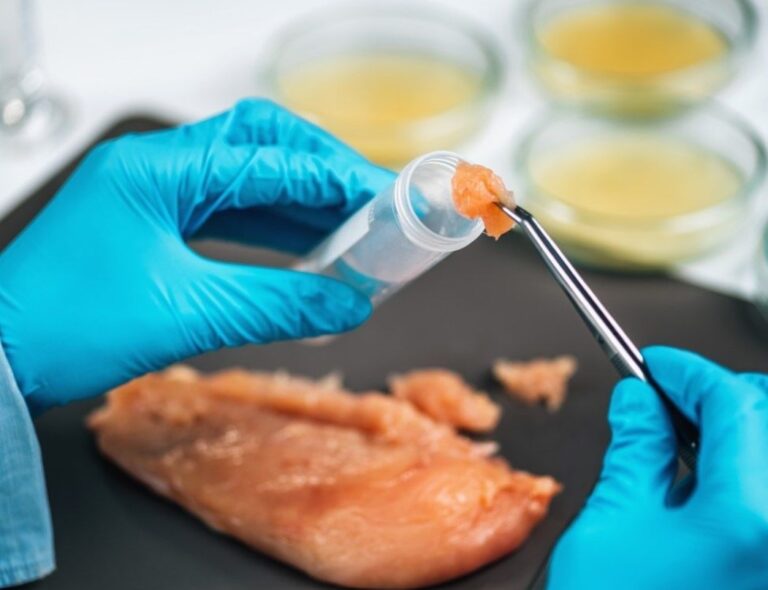But what does lab-grown meat taste like? It’s hard to say, especially having never tasted it. You can try to understand it by reporting the experiences of those who have tried it. Casey Crownhart, for example, an editor at MIT Technology Review, tried it alongside conventional meat and a plant-based burger.
Table of Contents
Tasting experiences of cultured meat, beef and veggie burgers
Crownhart gave it a try, sampling a trio of miniburgers. Under the careful guidance of cultured meat company Ohayo Valley founder and CEO Jess Krieger, Casey Crownhart embarked on a sensory journey of sorts. The taste of meat grown for her was certainly different from meat. But perhaps not in a bad way. For her, the lab-grown hamburger looked a lot like plant-based meat substitutes.
The consistency was similar. Flavor-wise, she thought the lab-grown meat might be a little closer to the beef burger. The author, however, found herself wondering about her perception. Thus wondering if knowing the taste of animal cells had influenced her judgment.
A sensorial journey into the world of cultured meat
Israeli culinary expert Michal Ansky was invited to the first public blind test comparing lab-grown chicken to a conventionally raised product. Surrounded by cameras and sitting at a restaurant counter with two other judges, an Israeli restaurateur and a food journalist, Ansky inspected two samples. One with cultured meat and one conventional, labeled A and B respectively.
A team of lawyers vouched that the tasting was effectively blind. And even the chef who cooked the meat with sunflower oil, without salt or seasonings, didn’t know which was which. Sample A was slightly darker than sample B, but otherwise both looked and smelled the same.
Ansky tasted the contents of bowl A, then B, and A again. She complained that both were bland, lacking the fat that gives chicken breast flavor. Although the samples had been finely ground, making it impossible to assess the texture, Ansky would have bet that sample A was the real chicken, as it had a “chicken” flavor.
The tasting was organized by Tel Aviv-based food tech start-up SuperMeat at its in-house restaurant, The Chicken. Behind the restaurant counter, a window looked out into the lab where the company’s cultured meat samples were generated from stem cells, fed into large stainless steel bioreactors.
Does knowing the taste of meat influence judgments about cultured meat?
Although participation was limited to journalists and onlookers, the event marked a turning point in the world of food technology. Since 2013, when the first lab-grown burger was introduced to the public at a cost of $330,000, alternative meat companies have come ever closer to a product that is as tasty and almost as affordable as the original.
GOOD Meat, the cultured meat division of California-based food technology company Eat Just, is already selling lab-grown chicken in a Singapore restaurant. Several other companies promise that their lab-grown fish and steak products will soon be on supermarket shelves in the United States. Despite the interest in these innovative products, one question remains. Would consumers be able to tell the difference, and if so, would they still be willing to try them?
The taste of laboratory-grown meat remains a subjective experience. Thus influenced by expectations and individual knowledge of the flavor of the meat. While some industry experts note similarities with plant-based alternatives, others highlight possible approaches to conventional meat.
The debate on laboratory-grown meat will continue to grow. And only if its taste is up to par, its diffusion on the market could be a sustainable solution to the environmental challenges linked to meat production.
Read also: What will we eat in the future? Challenges and trends of the coming years












